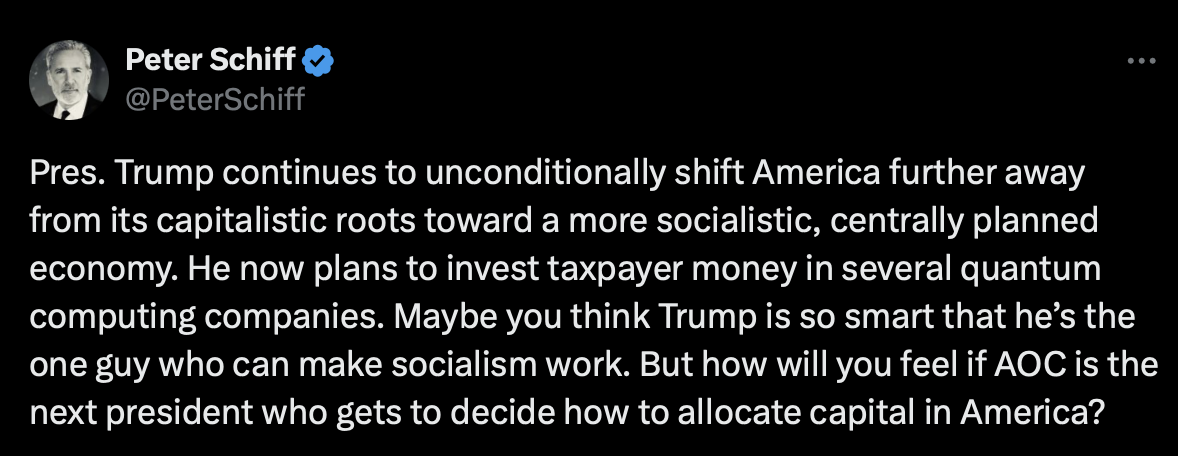US Quantum Computing Investments Weighed for Security and Crypto
Background: US Considers Funding Quantum Computing
The United States government is reportedly in the early stages of discussions with quantum computing firms regarding potential financial support. These talks, as revealed by Cointelegraph via Bloomberg, center on leveraging funds from the CHIPS Act to advance quantum computer technology. The initiative is driven by concerns over national security and a strategic push to compete with China in emerging technologies.
Department of Commerce officials have indicated a willingness to use federally allocated funds to invest in the sector. In return, the government may seek reciprocal benefits, such as acquiring an equity stake in the companies benefiting from this support. This approach mirrors a prior deal with chip manufacturer Intel in August 2025, when the US government took a 10% stake, as reported by CNBC.
Market Reactions and Crypto Security Concerns
The prospect of US quantum computing investments has generated both anticipation and debate within industry circles. Some economic analysts have voiced concerns about the government’s increasing involvement in private sector funding. Economist Peter Schiff commented on social media that “the free market should dictate how funds are allocated,” suggesting that excessive state intervention could steer the economy toward central planning.

The urgency for advancing quantum computing in the US also stems from its implications for digital security. Quantum computers have the theoretical capacity to break current encryption standards, which are prevalent in cryptocurrencies as well as in financial, medical, and military data protection systems. This potential threat has prompted the crypto industry to actively seek out post-quantum cryptographic measures.
Experts remain divided on the exact timeline for “Q-Day”—the point at which a quantum computer could successfully breach existing encryption. Some forecast this could happen within five to ten years, while others caution that risks already exist through “harvest now, decrypt later” tactics. In such scenarios, malicious actors may collect encrypted data today, planning to decrypt it in the future once quantum capabilities reach the necessary threshold.
Ongoing Debate and Next Steps
David Carvalho, CEO of cybersecurity firm Naoris Protocol, told Cointelegraph that the emergence of operational quantum computers may remain undetected by the public for extended periods. According to Carvalho, “when you think you’re seeing a quantum computer out there, it’s already been in control for months.”
As these discussions and debates unfold, the US government’s move to possibly invest in quantum computing firms underscores both its commitment to technological leadership and the pressing need to secure digital infrastructure. Ongoing evaluations will determine the size, form, and strategic conditions attached to any quantum computing investments funded via the CHIPS Act.
For more updates on quantum technology and cryptocurrencies, visit Vizi’s cryptocurrency section.
What’s Next for Quantum Computing and Crypto Security?
The United States is expected to continue talks with quantum technology providers while also consulting national security experts and legislative stakeholders. The outcome may influence global approaches toward balancing innovation with cybersecurity risks connected to quantum computing. Meanwhile, the cryptocurrency industry is accelerating efforts to deploy post-quantum cryptography to protect assets from future technological threats.
Sources:
Cointelegraph



















